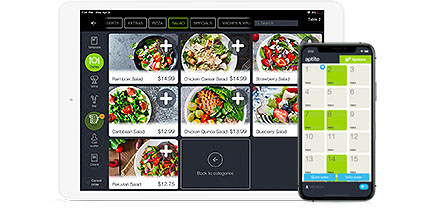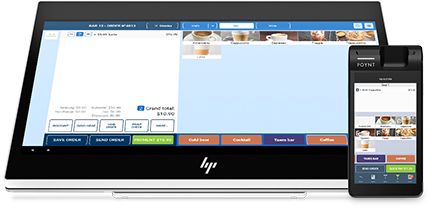A Talented Quick Change Artist, the Digital POS is Music to Qin3 min read
Qin Restaurant and Café, in the Chaoyang District of Beijing, is named for the famed 3000 year-old Chinese stringed musical instrument. The name guqin (or qin) simply means “ancient musical instrument,” but, China’s new, dynamic, English newspaper, Global Times, says the qin is “[o]ften referred to as the king of ancient Chinese instruments” because it symbolizes “traditional Confucian culture.” At Qin Restaurant, the guqin (pronounced “goo-chyin”) is a symbol of its commitment to the preservation of traditional Chinese culture and music, while Qin’s digital Point-of-Sale (POS) system (or, digital POS) is a symbol of Beijing’s commitment to modernization. (Be sure to read our previous blog post, “Qin Harmonizes Ancient Chinese Culture with iPad Handheld Menu.”)
Live performances of traditional music grace the restaurant’s performance stage nightly, from 7:30 – 9:30 p.m. The performances often feature Guqin master Chen Leiji (whose stunning performance, immediately following the flag-raising during the Opening Ceremony at the 2008 Beijing Olympics, thrilled millions) or the talented Zhao Jiazhen (a well-known guqin player), accompanied by her equally talented husband, classical percussionist Li Congnong. The musicians provide what Global Times calls, “an aural feast fit to accompany the meal,” while the digital POS provides a visual feast that enables guests to visually sample each dish before ordering.
The digital POS is music to the ears of Qin’s manager, Zhang Lichang. Zhao Yanrong of China’s national English newspaper, China Daily, says Zhang used to worry about changing the menu at the restaurant. Once a year he would have to reprint the entire full-color menu book at a per-unit cost of between ¥1,000-3000 (1,000-3,000 Chinese Yuan Renminbi (CYN); about $150-$470). To avoid the high cost of reprinting the entire menu during the year, Zhang would cover up the picture of a dish no longer offered by gluing a piece of paper over the photo, and add new items to the menu by printing individual pages and inserting them between the existing pages of the menu book. Though cost effective, the results were far from aesthetically pleasing.
The digital POS changes all of that. With the digital POS, Zhang is able to update the restaurant’s iPad menus at will – seamlessly adding dishes or deleting them from the menu, without incurring additional costs.
With the digital POS, Zhang can also frequently change other features offered on the iPad menus – providing information to educate Qin’s customers on different aspects of traditional Chinese culture and music, or games to entertain and engage Qin’s guests, while they wait for their meal to be served.
Confucius said, “The one who would be in constant happiness must frequently change.” It seems the digital POS at Qin is in perfect harmony with the restaurant’s guqin culture, after all.
Disclaimer: This is an independent report sourced from one or more news articles and or press releases; none of the company’s, entities or technologies digressed in this report are affiliated with or a client of Open.
Open offers a unique All-in-One Solution that features digital POS and that also includes a reservation app, integrated POS with remote access and an easy-to-use online interface. Click Here to learn more.



